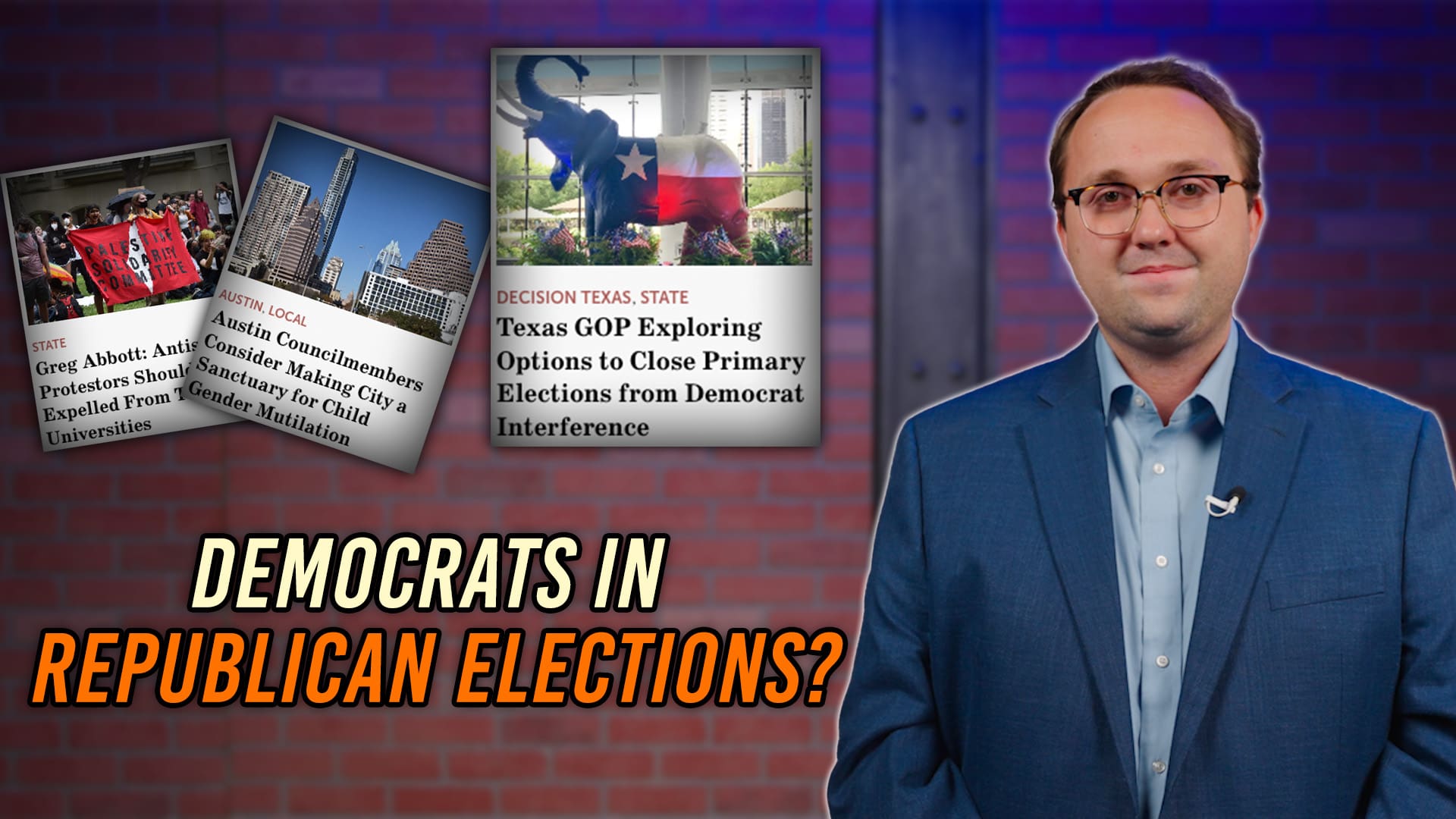Two city officials and their taxpayer-funded lobbyist who is paid by the cities were the only three people to testify against citizens having a say on whether or not their land is annexed by a city.
During the Texas House Committee on Land and Resource Management’s meeting on Tuesday, lawmakers sparred with a representative of the Texas Municipal League, a big government taxpayer-funded lobby organization, over the issue of forced—or involuntary—annexation.
Last session, lawmakers passed legislation requiring major cities to put forth a proposal for voters to consider and approve before they can forcibly annex land outside of their existing jurisdiction, with the option for residents of smaller cities to opt in via petition. However, not every county received the protection. Enter House Bill 347, authored by Weatherford Republican State Rep. Phil King, which would pick up where SB 6 left off by extending the voter approval requirement to counties and municipalities with a Tier 1 designation.
According to Texas Public Policy Foundation’s Policy Analyst Bryan Mathew, “a tier 1 county is any county with a population of less than 500,000 and that does not contain a freshwater fisheries center operated by the Texas Parks and Wildlife Department. A tier 2 county is any county that is not a tier 1 county.” Moreover, “the law requires “tier 2 municipalities” to obtain the consent of a majority of property owners and residents being annexed through either a publicly held election or via a petition process.”
Only one individual opposed the commonsense reform: Scott Houston, Deputy Executive Director and General Counsel for the Texas Municipal League; largely funded by millions of taxpayer dollars, the TML is one of the largest Austin-based lobbying groups for growing the size and scope of government.
“We’re here to advocate that the cities should have the authority to decide what’s best for them, based upon this system that was created years and years ago,” Houston told the committee. “Under [last session’s law], the cities in the largest counties are essentially prohibited from annexing now.”
Houston drew the ire of conservative State Rep. Jonathan Stickland (R–Bedford), who pointed out that he was the only person who had come down to oppose the bill, which was largely supported by citizens who had trekked to the Capitol to vocalize their support for including their smaller city that has abused involuntary annexation since the process was reformed in 2017.
“Well, I’m looking at the deal here and, overwhelmingly, it’s a bit compelling that we’ve got individuals [who] are coming here on their own dime, on their own time, to speak for this bill,” said Stickland, “And the one person that’s come before me today [in opposition], is the one who’s paid to be here with their money, ironically.”
State Rep. Cecil Bell (R–Magnolia), also an author of the bill, made it a point to highlight the need for the change, which simply requires all cities, regardless of size, to receive the voter-approved permission of property owners, saying:
“My point is just this: when cities come to citizens with a value proposition, it is possible to have voluntary annexation and no need for involuntary annexation. You’ll end the enclave challenges and other things when you bring value propositions to those people. If you don’t have a value proposition, you should not touch that property.”
The bill was left pending in committee but is already showing signs of strong and bipartisan political support inside the Capitol. In addition to King and Bell, coauthors include State Reps. Dan Huberty (R–Kingwood), Terry Canales (D–Edinburg), Lyle Larson (R–San Antonio), Mike Lang (R–Granbury), and Jared Patterson (R–Frisco).
Three identical bills, Senate Bills 408, 745, and 1432, have also been filed in the Texas Senate and are authored by State Sens. Brian Birdwell (R–Granbury), Charles Schwertner (R–Georgetown), and Pat Fallon (R–Prosper), respectively.
The video of the full exchange can be seen here:
Updated: This article was updated on March 7th, 2019 to include more specific information regarding the designation of Tier 1 and Tier 2 counties and municipalities as defined by Texas Local Government Code §43.001.





